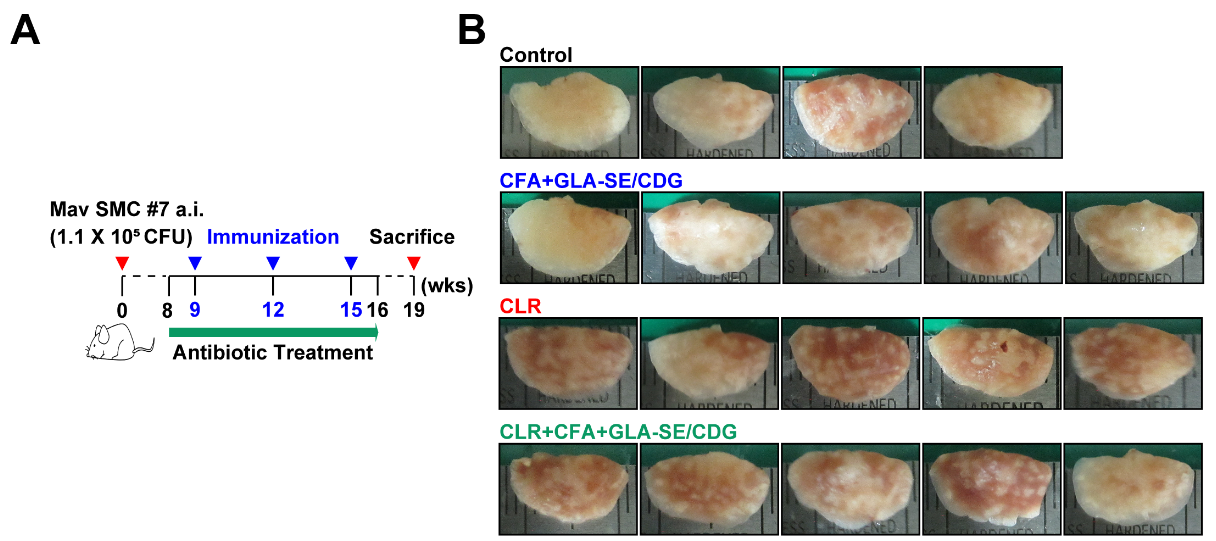Our lab is interested in the fundamental aspects of Mycobacterial microbiology and immunopathogenesis. We aim to understand the biology of Mycobacteria by examining how these pathogens adapt to the microenvironment during interactions with the host, leading to disease progression. Additionally, we investigate how the host immune system responds to these pathogens.
Project 1. Modulating bone marrow cells for infectious lung disease
The only licensed vaccine for tuberculosis, BCG, not only prevents tuberculosis but also demonstrates protective efficacy against a wide range of infectious diseases. This efficacy of BCG is attributed to the activated memory response of innate immune cells, defined as trained immunity. Despite being an innate immune response, this memory response is sustained and inherited through immunological, epigenetic, and metabolic reprogramming of hematopoietic stem cells in the bone marrow. Although South Korea mandates BCG vaccination, it still has the highest tuberculosis incidence rate among the 38 OECD member countries. Therefore, focusing on this aspect, we aim to identify factors contributing to the differences in BCG protective efficacy across hosts by examining the immunological and metabolic activation mechanisms of innate immune cells using various infection susceptibility/resistance animal models. Through this, we intend to elucidate and regulate the differentiation mechanisms of hematopoietic stem cells, the origin of innate immune cell generation, and induce the generation of trained innate immune cells to contribute to host-directed therapy.
Project 2. Animal models for translational research
Nontuberculous mycobacteria (NTM) are a group of Mycobacterium species excluding the Mycobacterium tuberculosis complex and Mycobacterium leprae. Pulmonary diseases caused by NTM account for more than 90% of NTM infections. Since NTM are widely present in natural environments, it is impossible to prevent the source of infection itself. Unlike tuberculosis, NTM pulmonary disease was relatively unknown until the 2000s. However, there has been a sharp increase in its incidence worldwide in recent years, with a significant rise in South Korea over the past decade, surpassing tuberculosis incidence rates by 2022. The treatment duration for NTM pulmonary disease averages 16 months, which is quite lengthy. Moreover, the disease has low treatment success rates, high recurrence rates, and prolonged morbidity, making it a significant current and future infectious disease problem, particularly in aging societies globally, thus increasing the social burden. Despite the severity of the situation, research on NTM pulmonary disease remains limited to epidemiological reports, and the lack of animal models for studying its pathogenesis is a critical issue. Therefore, our laboratory previously established a mouse model for therapeutic vaccines aimed at controlling NTM pulmonary disease and aims to continuously establish suitable animal models that can represent clinical situations effectively to control NTM pulmonary disease more efficiently.

Project 3. Drug discovery for treating Mycobacteria based on radiation technology
Our goal is to discover new drug candidates based on structural modification using radiation technology to overcome the technical limitations of existing approaches in addressing intractable infectious diseases, such as tuberculosis and non-tuberculous lung diseases.